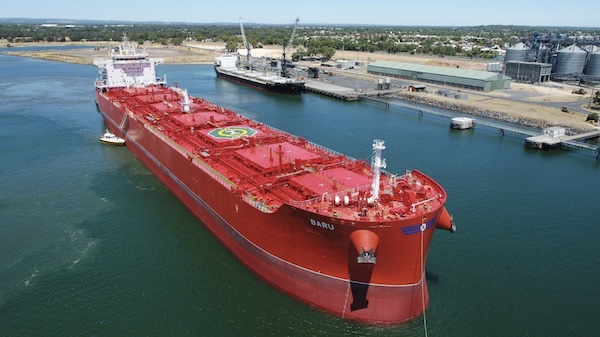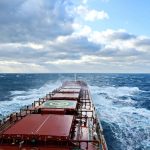KCC Chartering AS (“KCCC”), a subsidiary of Klaveness Combination Carriers ASA (“KCC”) and South32 Marketing Pte Ltd, a subsidiary of globally diversified mining and metals company South32, have agreed to include a carbon pricing mechanism in their existing contract of affreightment (“COA”).
In the six-year COA between KCCC and South32, announced in January 2022, the parties agreed a sustainability framework targeted to reduce carbon dioxide emissions from KCC’s fleet, including fleet used for shipping South32’s caustic soda to Australia.
As part of this framework, in 2022 KCCC and South32 jointly developed a mechanism whereby freight paid under the COA is linked to the carbon dioxide emissions of KCCC’s vessels, relative to an agreed baseline. In the agreed mechanism, implemented from 2023, KCCC will receive higher freight if actual carbon dioxide emissions are below the baseline and lower freight in the event of under-performance relative to the baseline. Additional freight paid by South32 through this agreement will be dedicated to investments in energy efficiency measures in KCCC’s fleet.
KCC Chief Executive Officer Engebret Dahm said: “The shipping industry needs a price on carbon emissions to incentivize efficiency improvements and to start the transition to new fuels. In the absence of effective regulations, we are grateful for the support and partnership with front-runners South32 in developing and introducing the first carbon pricing mechanism in the dry bulk and tanker industries.”
South32 Vice President Sustainability Strategy and Community Holly Buschman said: “We are pleased to reach this new industry-first agreement with Klaveness Combination Carriers ASA.
“At South32, we produce commodities that are critical for a low-carbon future.
“We recognise that we have a critical role to play in contributing to the decarbonisation of the value chain, in partnership with our customers and suppliers. This agreement with Klaveness Combination Carriers ASA is an important step towards our goal of net zero Scope 3 greenhouse gas emissions by 2050.”
Source: Hellenic Shipping News




